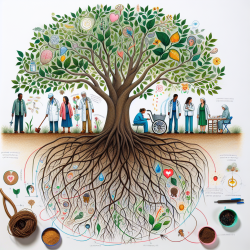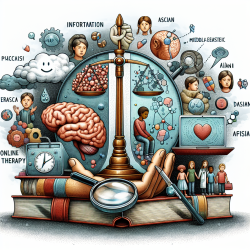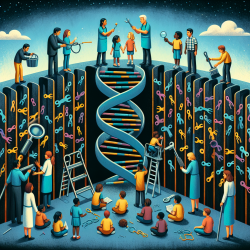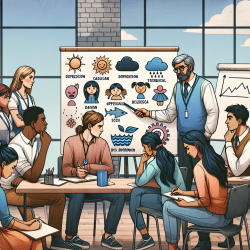The study "The Social Ecology of Childhood and Early Life Adversity" by Lopez et al. (2021) emphasizes the critical need for a comprehensive understanding of childhood adversity that extends beyond the traditional Adverse Childhood Experiences (ACEs) framework. This research underscores the importance of considering the broader social ecology, which includes both adverse and positive experiences, to effectively address and mitigate the long-term impacts of early life adversity (ELA).
For practitioners working with children, integrating the findings from this research can significantly enhance their ability to identify and address the multifaceted nature of childhood adversity. Here are some key takeaways and actionable steps:
- Broaden Assessment Criteria: Move beyond the ACEs questionnaire to include a detailed evaluation of the child's social ecology. This should encompass positive experiences, social relationships, and resilience-promoting factors. By doing so, practitioners can obtain a more holistic view of the child's environment and its impact on their development.
- Utilize Biomarkers: Incorporate physiological measurements, such as hair cortisol concentrations (HCC), to assess chronic stress levels in children. HCC provides a summative and chronological record of stress exposure, offering an objective metric that can complement traditional assessment tools.
- Focus on Protective Factors: Emphasize the role of supportive relationships, stable environments, and positive experiences in buffering against the effects of adversity. Programs and interventions should aim to enhance these protective factors to foster resilience and promote healthy development.
- Advocate for Comprehensive Interventions: Collaborate with multidisciplinary teams, including educators, social workers, and policymakers, to develop and implement interventions that address the root causes of childhood adversity. This includes advocating for social policy changes that reduce systemic inequities and improve community resources.
By adopting a social ecological approach, practitioners can better understand the complex interactions between adverse conditions, protective factors, and developmental outcomes. This holistic perspective not only improves the accuracy of assessments but also informs more effective and targeted interventions.
Encouraging further research in this area is crucial. Studies that explore the interplay between genetic, epigenetic, and environmental factors within the context of a child's social ecology can provide deeper insights into the mechanisms underlying ELA and its long-term effects. Additionally, validating and implementing biomarkers like HCC in clinical practice can enhance our ability to monitor and address chronic stress in children.
In conclusion, integrating the insights from "The Social Ecology of Childhood and Early Life Adversity" into practice can significantly improve outcomes for children facing adversity. By broadening assessment criteria, utilizing biomarkers, focusing on protective factors, and advocating for comprehensive interventions, practitioners can create more supportive and effective environments for children's development.
To read the original research paper, please follow this link: The Social Ecology of Childhood and Early Life Adversity.










